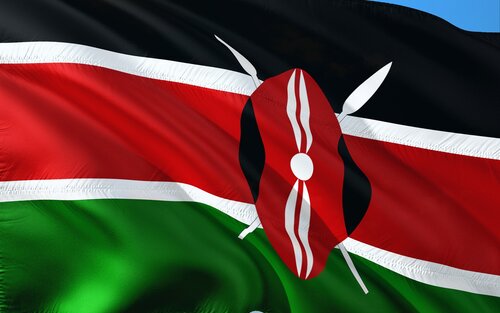Why Persons with disabilities Wanted To Be Enjoined in the Presidential Election Petition
Persons with disabilities in Kenya are among those who sought to be enjoined in the presidential election petition 2022 that contested the presidential results of the August 9 polls.

Kenyan Presidential election (Unsplash)
Through the Inua Mlemavu Organization, the persons with disabilities claimed that most of them could not participate in the polls that saw outgoing Deputy President William Ruto declared as President-Elect.
According to the organization's Chairman, Michael Makarena, the exercise excluded most of the persons with disabilities due to the inaccessibility of the polling stations.
"It is clearly evident that the impugned general election conducted on August 9 was not free and fair to all as persons who are physically challenged were not able to access the polling stations to exercise their right to vote due to lack of proper facility,” Makarena has been quoted as saying on August 29.
Makarena also claimed that despite raising their concerns early on with the Independent Electoral and Boundaries Commission (IEBC), the polls body failed to assign sign language interpreters for hearing-impaired voters, thus locking them out.
According to the organization’s lawyer, Danstan Omari, IEBC discriminated against the estimated 900,000 Persons with disabilities by failing to heed their calls for disability-friendly voting facilities.
"If this critical mass of people had been allowed to vote, the outcome would be very different,” Omari was quoted as saying, referencing the Persons with disabilities.
He added, “If this is how country will discriminate against its vulnerable citizens, then that country cannot be said to be in the league that respects fundamental Human rights."
The claims of IEBC discriminating against persons with disabilities in the August 9 polls sharply contrast with the promises made by the Commission's Chairperson, Wafula Chebukati, in October 2021. During an engagement forum with persons with disabilities held to promote voter participation and inclusion, Chebukati noted that the polls body was planning to procure disability-friendly polling booths.
“This forum with persons with disabilities holds key for IEBC to engage, collaborate and find ways of increasing participation of persons with disabilities in the electoral process. The Commission assures persons with disabilities of its commitment to ensuring inclusivity in electoral process,” Chebukati told participants during the forum at the Kenya Institute of Curriculum Development (KICD).
IEBC's failure to ensure accessibility of polling stations for persons with disabilities contradicts Article 30 of the Persons with Disabilities Act 2003. The Article requires polling stations to “be made accessible to persons with disabilities during elections, and such persons shall, in addition, be provided with the necessary devices and assistive devices and services to facilitate the exercise of this right under this section.”
Further, IEBC contravened Article 29 of the Convention on the Rights of Persons with Disabilities (CRPD), which requires State parties to guarantee the political rights of persons with disabilities by, among other things, "Ensuring that voting procedures, facilities, and materials are appropriate, accessible and easy to understand and use.”
